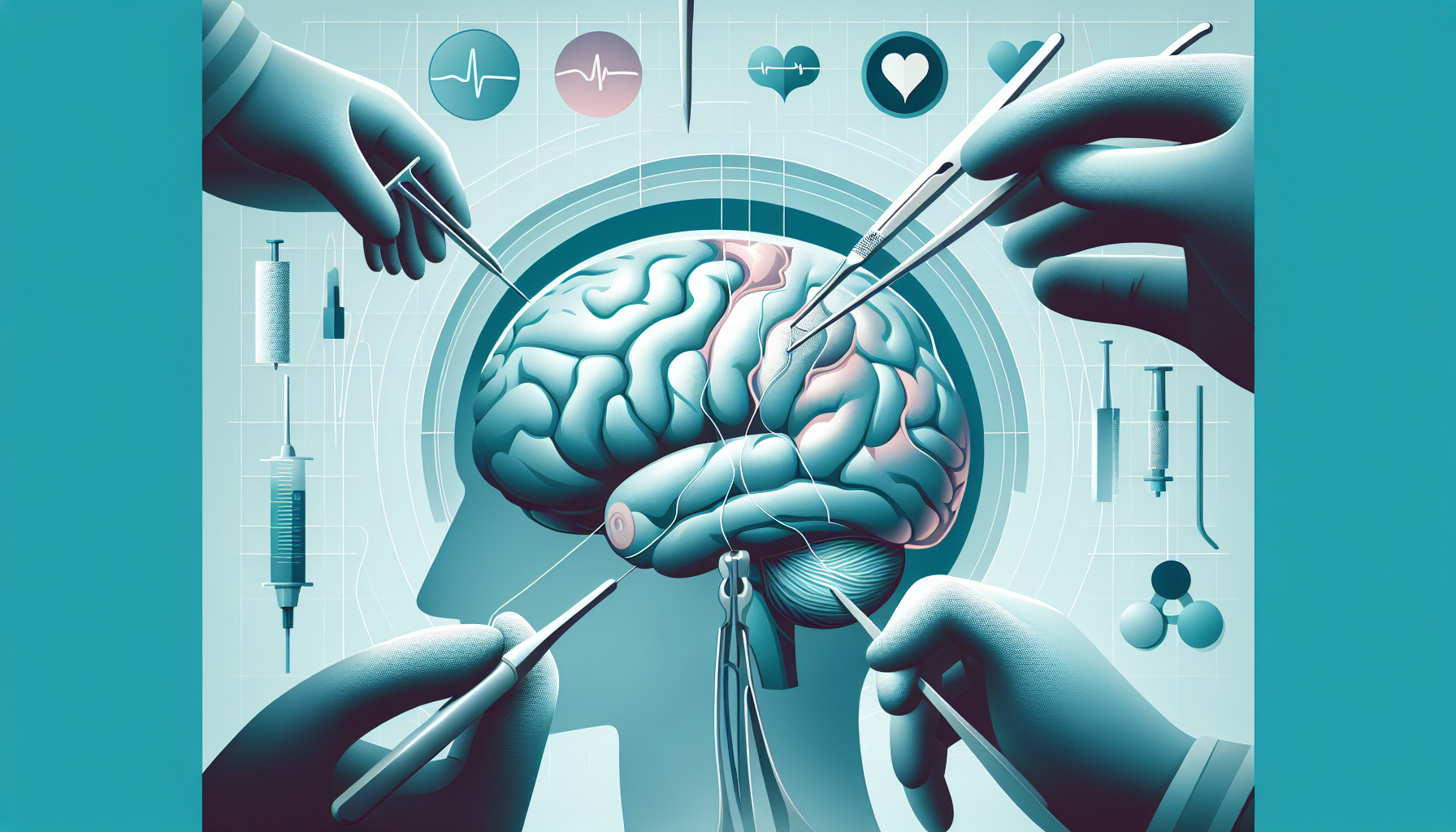Our Summary
This paper discusses the life and contributions of Dr. Collin S. MacCarty, a renowned neurosurgeon known for inventing the MacCarty keyhole. The MacCarty keyhole is a method used in brain surgery, specifically in operations involving the area around the eye socket and cheekbone. MacCarty was born in 1915 in Minnesota and was inspired by notable surgeons like Alfred Adson and Walter Dandy. He had a prestigious career and held key positions at the Mayo Clinic, including the Chair of the Department of Neurosurgery and the President of the American Association of Neurological Surgeons. He was particularly known for his expertise in dealing with meningiomas, a type of tumor that forms on membranes covering the brain and spinal cord. His invention, the MacCarty keyhole, is still used widely today in neurosurgery.
FAQs
- Who was Dr. Collin S. MacCarty?
- What is the MacCarty keyhole and how is it used in neurosurgery?
- What are meningiomas and how did Dr. MacCarty’s expertise contribute to their treatment?
Doctor’s Tip
One helpful tip a doctor might tell a patient about craniotomy is to follow post-operative care instructions closely, including taking prescribed medications, avoiding strenuous activities, and attending follow-up appointments. It is important to rest and allow your body to heal properly after a craniotomy to ensure the best possible outcome. Additionally, it is important to communicate any concerns or changes in symptoms to your healthcare provider promptly.
Suitable For
Patients who are typically recommended for a craniotomy include those with brain tumors, aneurysms, arteriovenous malformations, traumatic brain injuries, and epilepsy that cannot be controlled with medication. Additionally, patients with certain neurological conditions such as Parkinson’s disease and trigeminal neuralgia may also benefit from a craniotomy. The decision to undergo a craniotomy is typically made by a neurosurgeon after a thorough evaluation of the patient’s medical history, symptoms, and imaging studies.
Timeline
- Before the craniotomy:
- The patient will meet with their neurosurgeon to discuss their medical history, symptoms, and the need for a craniotomy.
- The patient will undergo pre-operative testing, such as blood tests, imaging scans (CT or MRI), and possibly a neurological examination.
- The patient will be instructed on how to prepare for the surgery, including fasting before the procedure and stopping certain medications.
- The patient will be informed about the potential risks and complications of the surgery, as well as the expected recovery process.
- After the craniotomy:
- Immediately after the surgery, the patient will be taken to the recovery room for monitoring.
- The patient may experience pain, swelling, and discomfort in the head and incision site.
- The patient will be given pain medication and instructions on how to care for the incision site.
- The patient will likely stay in the hospital for a few days for observation and further recovery.
- The patient will be advised on post-operative care, including restrictions on physical activity, wound care, and follow-up appointments with the neurosurgeon.
- The patient may need physical therapy or rehabilitation to regain strength and function after the surgery.
- The patient will have regular follow-up appointments with the neurosurgeon to monitor their progress and address any concerns or complications.
What to Ask Your Doctor
- What specific condition or issue is necessitating a craniotomy?
- What are the potential risks and complications associated with a craniotomy?
- What is the expected outcome or prognosis following a craniotomy?
- What is the recovery process like after a craniotomy?
- Are there any alternative treatment options to consider before undergoing a craniotomy?
- How experienced is the surgeon in performing craniotomies and what is their success rate?
- What type of anesthesia will be used during the procedure?
- Will I need any additional tests or imaging before the craniotomy?
- How long will the surgery take and how long will I need to stay in the hospital?
- What post-operative care and follow-up appointments will be necessary after the craniotomy?
Reference
Authors: Jumah F, Adeeb N, Dossani RH. Journal: World Neurosurg. 2018 Mar;111:269-274. doi: 10.1016/j.wneu.2017.12.121. Epub 2017 Dec 27. PMID: 29288843
